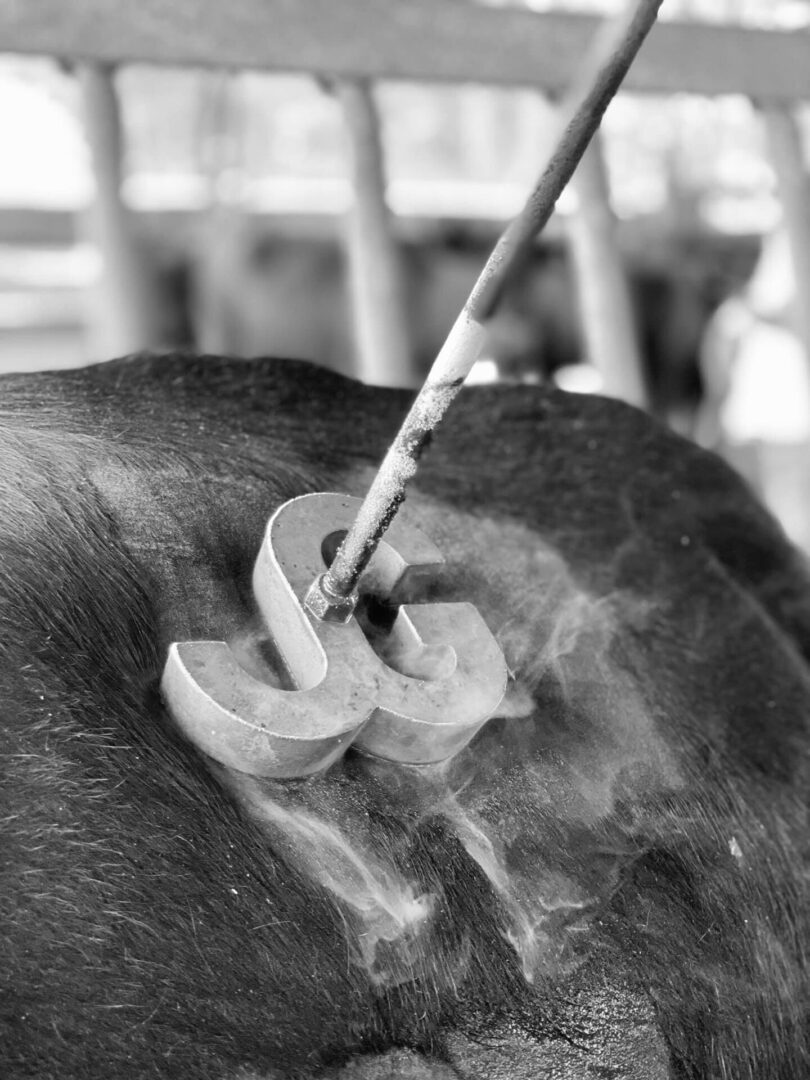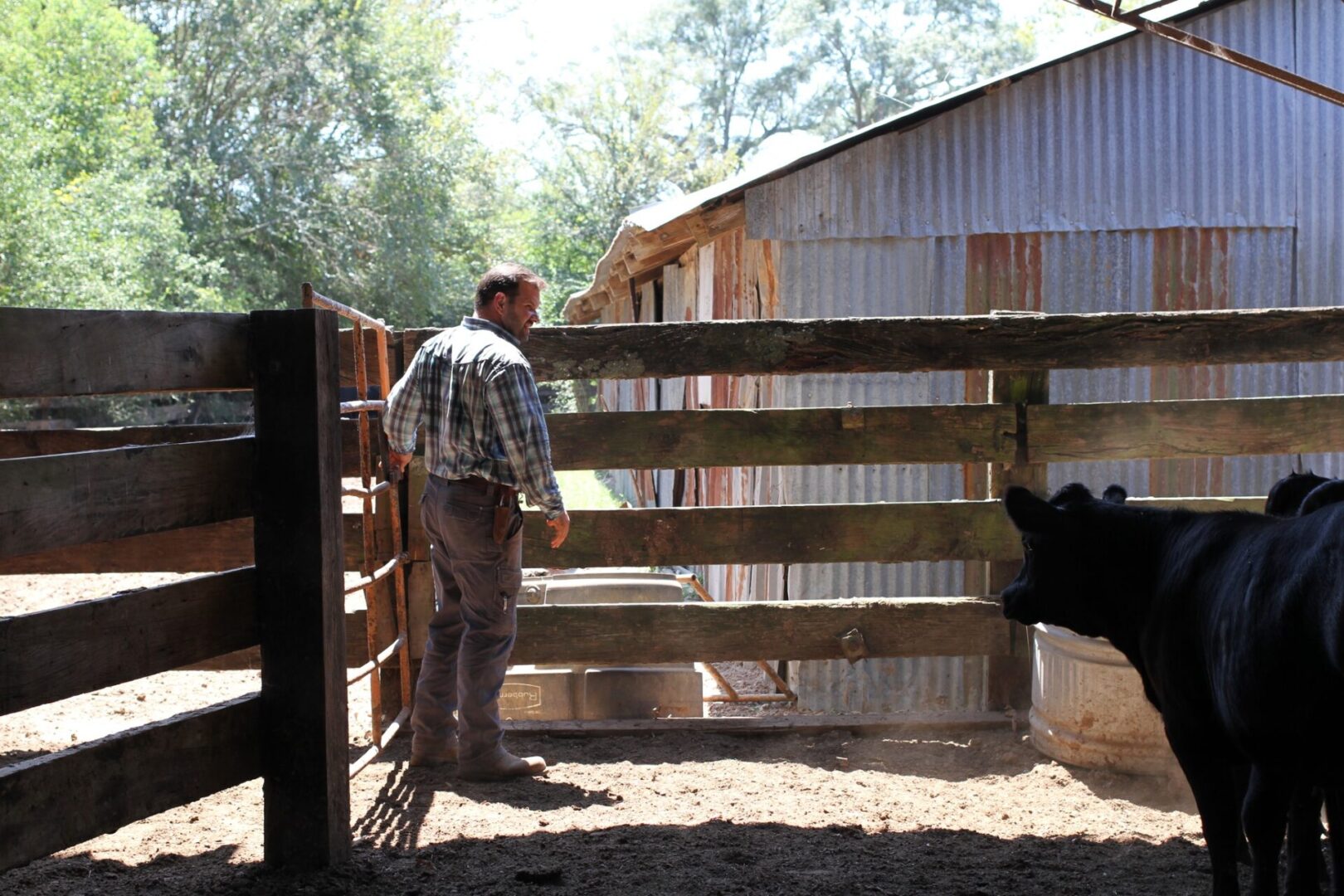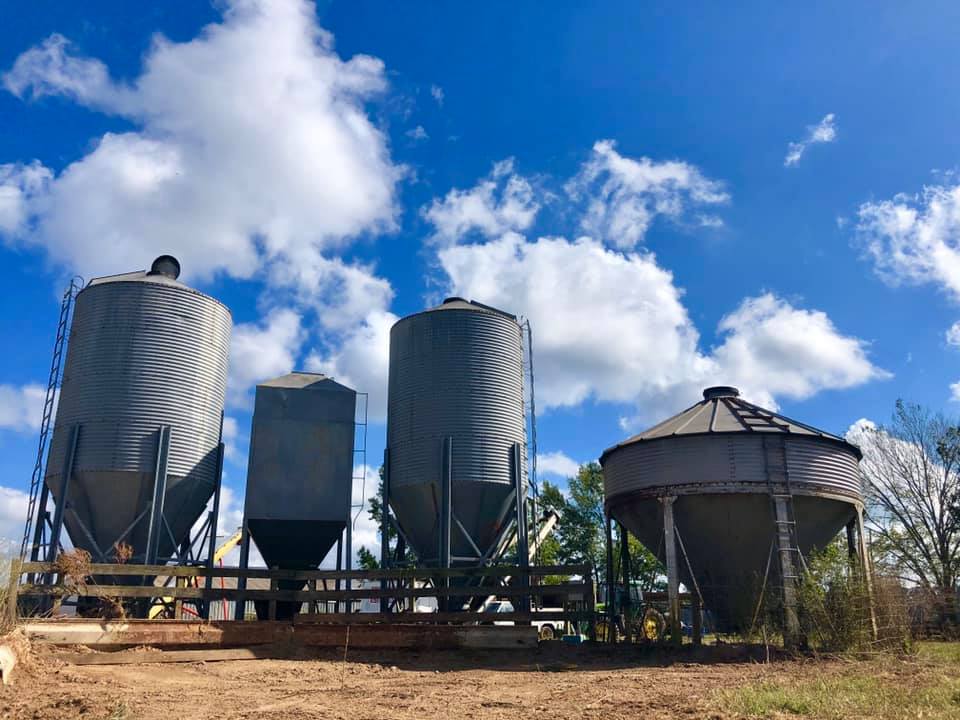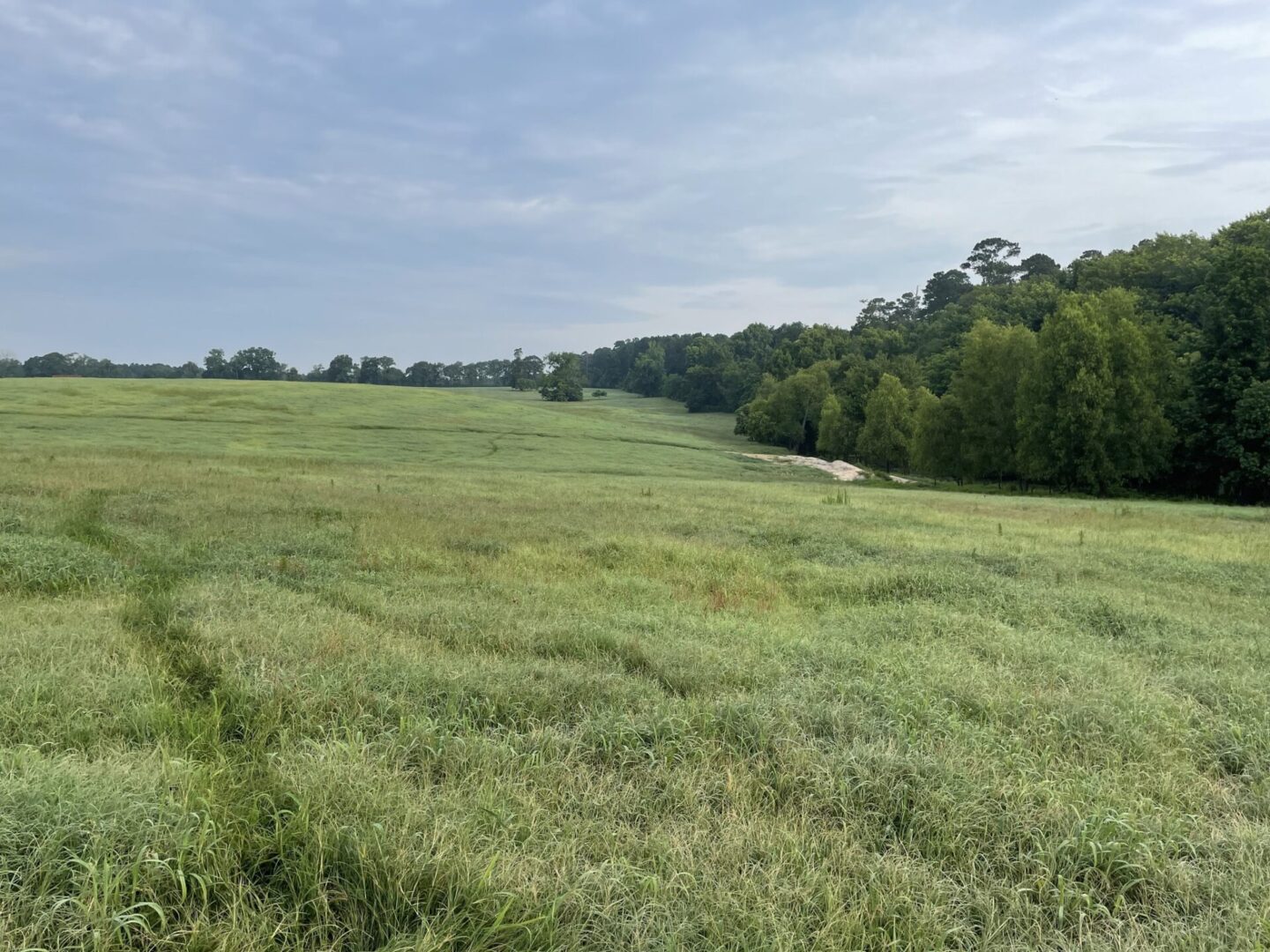
Our Legacy of Quality Farming
Ranching is a way of life. A codependent existence between the rancher and the cattle. The rancher depends on the success of the cattle as much as the cattle counts on him for their necessities and care. Accordingly, there are few priorities more important than the care of the herd. What does this mean in practice? At RCC, it means we put the cows first. We start by producing the highest-quality food possible.
We believe that our location in Deep East Texas provides a particularly unique and special environment for this. Our sandy loams and bottomlands are well suited to the various types of bermudagrass (Coastal, Alicia, Tifton 85, and Callie) and bahiagrass (Tifton 9, Argentine, and Tifquik) that we grow. We plant additional acres of improved bermudagrass every spring and focus on keeping current stands healthy and growing.
To do this, we focus on soil composition and care. We strive to keep our organic matter and soil nutrients high. We zealously consider anything that impacts the “dirt”.
In fact, Joe B. Gulley, Jr. DVM, (“Doc”) always considers himself a farmer first—and you’ll never meet a person more concerned with preserving and improving the soil and the associated foliage. High-quality hay and pasture grass are the heartbeat of any cattle operation.
To learn more about our practices, please continue reading. If you would like to learn more about our products, head over to our Beef & Livestock pages.
Of the three major protein sources (pork, lamb, and beef), cattle are the only ones that upcycle. They consume fewer human-edible sources of protein than they produce (lamb and pigs both eat more “human food” than they produce). This is because cattle can eat grass and other forages that are not consumable by humans (or other animals without a rumen). In a true grass-fed and grass-finished system like ours, the beef you eat has consumed no human-edible protein sources and is a true upcycle. That’s why grass is so important—and why we pay such close attention to our soil.
There are many reasons we place the cow first. To be a rancher is to be a shepherd. To care for, provide for, and sacrifice for your cattle. Beyond that, they are unique creatures that deserve care and compassion. Finally, a ranch’s fiscal success depends on its ability to help its cattle be productive and efficient. As a result, we care about the well-being of each animal on the ranch, and are proud members of the Beef Quality Assurance program.
Our care for the cow starts when she’s a calf. Each calf born on RCC receives a special “840” ear tag. 840 stands for the United States—and lets everyone know the beef was born in this country. Each of these tags has a unique 15-digit number that is registered and matched to RCC’s unique premise identification number. This allows for third-party tracking and identification, but it also allows RCC to record the date of birth and other information about the calf. Steers receive an electronic ID, or EID 840 tag, and heifers receive a color-coded tag based on the calving season in which they were born.
Shortly after birth, the calves are “worked.” We take great pride in a low-stress environment for our cattle. We cull hard based on disposition because we believe it’s easier for the herd if there are no ill-tempered or nervous cattle. All ranch hands are trained to observe stressors, observe and utilize flight zones, and understand the important experience of the animal. We work hard to maintain clean and safe facilities to keep both the cattle and hands safe.


Doc has been practicing veterinary medicine for 35 years, and has spent a lifetime caring for cows. Even with that lifetime of wisdom and experience, he continues to study and work to come up with the best vaccination and health-related treatments possible for the RCC herd. We vaccinate to prevent disease and parasites, and we believe in a robust biosecurity program. We are a closed herd, except for virgin bulls we purchase from 44 Farms. Accordingly, we limit the exposure we get to the outside world and therefore limit the amount of vaccines we have to use. We do not use growth hormones or antibiotic feed to boost the growth of our calves. We sacrifice overall production as a result, but we believe it’s important to allow beef to grow and finish the way it was intended.
While they are still nursing, we start the calves on a supplemental feed called “creep feed.” We utilize plant-based byproducts that provide a supplement to the cow’s milk. When the calves are ready to wean, we’ve found that if they are used to creeping feed, the weaning process is much easier. It is unusual to hear many complaints from either cows or calves at RCC. Compare this to the normal beef supply chain, where the first time many calves see a human is to be loaded up in a trailer, run through a sorting barn and auction ring, loaded on another trailer, and dropped in a feedlot with thousands of other stressed and nervous calves.
Understandably, these events produce huge amounts of stress, which makes the calves more susceptible to disease, causes them to lose weight, delays their maturation, and indelibly taints their perception of the human relationship. At RCC, rather than this traumatic experience, the calves are able to fence line wean on the same farm that’s always been home to them, and are raised in pastures on the same ranch where they were born.
RCC is among the very few ranches you will find that not only puts a premium on raising its calves in a low-stress environment but also finishes its fats in the same low-stress manner on the same ranch. We grass-finish our steers, and only supplement to the extent necessary with hay and plant-based byproducts. We proudly meet the requirements to use the grass-fed label.
After a lifetime of collective selection for desirable beef and maternal traits in our herd, and the low-stress and grass-fed environment in which our beef is raised, we truly believe we have something unique and special. Whether you’re looking for fantastic replacement heifers or the best rib-eye in town, we have what you need.

